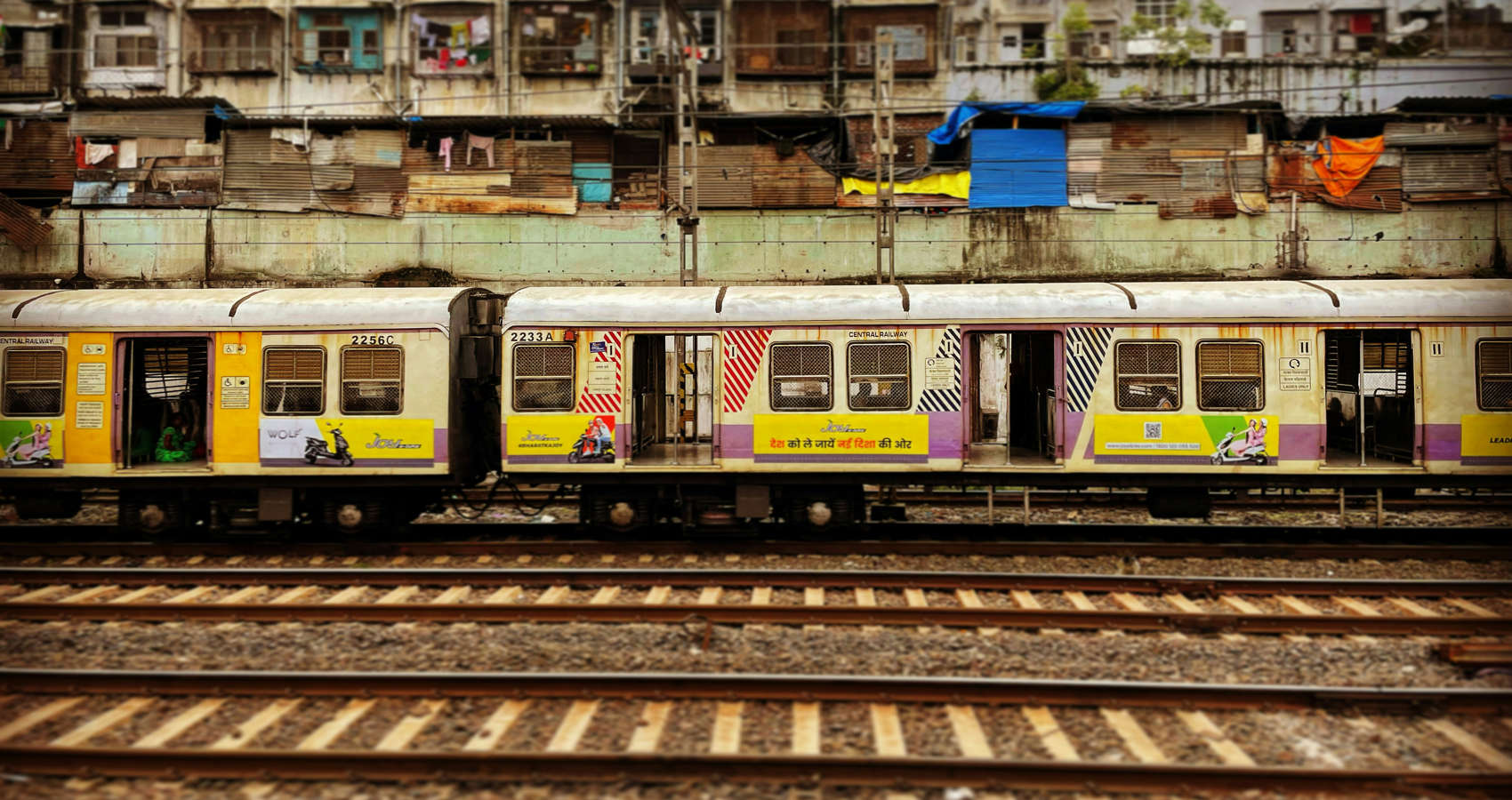Siddhartha
written by: S. Anand
It takes quite a bit of shouting and shoving to get inside the local train. I let go of two trains frothing at the doors with people and stood at the Vasai Road station holding a book in my hand and my e-ticket that had eighteen more minutes of validity left. I had slept poorly the previous night, which made everything look bloated and in slow motion, and it was getting late for work. A taciturn procession of passengers was moving towards the other end of the first platform, and I followed suit, sweating, and managed to get into a train that lay there snoring. The train was to start in a few minutes, the seats were all occupied, and I positioned myself adjacent to the seats. The regulars, which was most of them, had already eased into their routines—reels, stocks, series. Presently, the train woke up from its slumber and started moving tentatively; a gentle breeze managed to catch the train running and squeezed itself through.
I leaned against the frame of the seat next to me and tried to open my book. After having completed Kafka’s ‘Metamorphosis’ the night before, in the sweet limbo between books, I had committed myself to this mediocrity of a fantasy about a library. Before bowing to accept a slow death by the book, for once my eyes scanned the coach for office-going bugs. It was then that I noticed an only man with a book in his hands (other than me), standing sandwiched between the last row of seats and the electrical box on the other side. He was probably in his thirties, moderately tall, slimly built, with a clean-shaven face, and he wore a faded yellow half-sleeve shirt tucked into deep blue pants. The book looked familiar, slightly ragged, with a cover that must have been white at some point, and dog-eared at nearly one-third of the book. As I was trying to read the title—ah! the serene ‘old path white clouds‘—he caught my gaze (I must have been staring) and smiled at me. Now I had to reciprocate. The bookworm that I was, I wiggled and made some room and moved towards him. With some effort, I carved a place out of the crowd next to him to stand, introduced myself, and offered, “It would be a shame to ruin such a nice book. Here, you can use my bookmark.” His eyes twinkled as if it was the one thing he had been waiting for, and he thanked me warmly as he took it. “Thank you, Ananda.” The bookmark had violet lilac flowers on it and the phrase “o’er the paths where it rained” printed in turquoise. It was my favorite bookmark, but somehow I instinctively felt like offering it to him. He placed it carefully between the pages and liberated the canine auricle.
“How do you like the book, by the way?” I asked. ‘Old Path, White Clouds’ is the story of the Buddha. From the time he left the riches and found enlightenment to the day his form dissolved back into the universe, narrated with such conviction and love. An expression came over his face as if he was seriously racking his brains to find the best answer to that casual question and finally said, “As you know, time is an illusion; the seed doesn’t become the tree and the flowers—it is always the seed, the tree, and the flowers.” He paused. Then, lowering his voice to a whisper, he said, “I’m Siddhartha, the Buddha meditating under the pipala, and your co-passenger in this train. So, to answer your question, reading the book here is like looking into a mirror within a mirror. I love everything.” He winked.
Buddha in the local train. Clearly, he was deeply involved with the book. “So, Mr. Siddharth, what do you do for a living?” I asked nonchalantly.
“In another era, I learned tending to buffaloes from my friend, Svasti. Now I tend to cars in a garage. The principles are the same.” I’m sure I’d read something similar somewhere. Krishna and Dubček? A bibliophile car mechanic; the day was still young for more weirdness. As I listened to him, I studied his features. Longish eyes, shoulders relaxed amidst all the jostling, nimble fingers resembling a pianist’s rather than a mechanic’s. Indeed, his whole demeanor had a peaceful quality to it. Like the Buddha perhaps?
“Family?” I ventured. His countenance turned solemn, and he said, “I live with my parents and my sister in a small apartment in Vasai. We’re a happy family.” After a pause, as though waiting for the right moment, with a tender assertiveness he added, “But it’s time. Why be a bug when you can be Buddha?” There was a loud noise like electricity crackling, and the whole train jolted violently. There was chaos and commotion; cries and sighs spilled all over the place. The Buddha was still calm and was radiating a smile with half-closed eyes. A blinding beam of light struck my face. As if a thousand suns had risen inside the train. The next instant, he was gone. Vanished like a wisp of light. I grasped at thin air for something to hold on to. Nothingness. Silence.
I rubbed my eyes trying to regain normalcy; floaters and phosphene stars danced around, a cold breeze chilled my spine; I was sweating profusely. Silence turned into whisper, murmur, clamour. The train had entered a station, and most of the passengers were hurrying to get down. My book lay on the floor by the seat and had been stamped upon. The lilac flowers had reached their destination. I had yet to.
- Away - March 12, 2025
- Siddhartha - July 12, 2024
- Kaivopuisto - March 24, 2024



